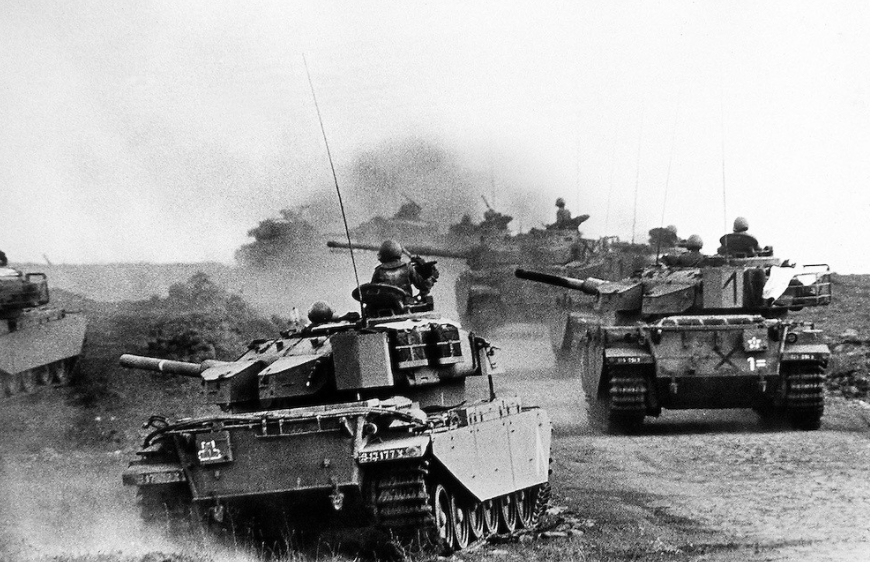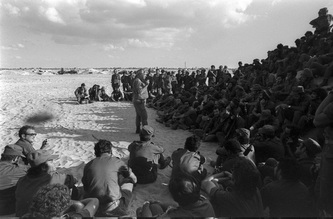

You cannot ask a nation to withdraw from the only bargaining point she has’. Two years later, she had been full-throated in her support of Israel in the Six Day War, declaring at a rally shortly after its victory that it should ‘not withdraw from her new territories until she has her borders guaranteed.
#YOM KIPPER WAR FULL#
The future Prime Minister had first visited the Jewish state in 1965 and returned full of admiration for it. She had rooted out antisemitism in the local Conservative association, become a familiar figure at local community events, and had always been staunchly supportive of Israel.

Mrs Thatcher herself had established a strong relationship with local Jewish voters. The broadcaster was, a producer explained, expecting him to be one of the night’s shock victors.īut Mrs Thatcher’s difficulties in Finchley were not just the result of the unpropitious backdrop against which Heath had chosen to call an election – the country was suffering soaring inflation and, thanks to the miners’ strike, industry had been forced on to a three-day week – but were also rooted in events in the Middle East some five months earlier.įinchley had the highest proportion of Jewish voters in the country, and – both there and throughout the country – they were preparing to render a harsh verdict on the Heath government’s handling of the Yom Kippur war. That feeling only grew when ITV called to ask him to appear on its results programme the next day. If the Education Secretary was uneasy, her young Liberal opponent, Laurence Brass, was beginning to feel that he might be on the verge of pulling off a famous victory.

Her initial optimism about the election, Margaret Thatcher later wrote in her memoirs, had been ‘replaced by unease’. In her north London seat of Finchley, one of the Prime Minister’s Cabinet was feeling distinctly nervous. On 28 February 1974, Britain went to the polls in an election triggered by Edward Heath’s determination to win a mandate to defeat the industrial unrest sweeping the country. The story is told by Robert Philpot, author of Margaret Thatcher, Honorary Jew: How Britain’s Jews Helped Shape the Iron Lady and Her Beliefs, (Biteback, 2017). The year was 1973 and the Yom Kippur War, launched by the Arab states against Israel, was dividing Britain’s two main parties, galvanising the Jewish community, and the following year would even influence the outcome of the general election. The Zionist Labour leader of the Opposition was Israel’s most loyal and ardent friend while a Europhile Conservative Prime Minister was seen as betraying the Jewish State in pursuit of European unity and Arab oil.
#YOM KIPPER WAR WINDOWS#
So Sadat conceived of a daring plan to attack Israel again, which, even if unsuccessful, might convince the Israelis that peace with Egypt was necessary.Thousands of posters of Golda Meir appeared in the windows of Jewish homes money poured in to fundraising appeals and synagogues set up blood banks to provide Israel with urgently needed supplies. He wanted to make peace and thereby achieve stability and recovery of the Sinai, but after Israel’s 1967 victory it was unlikely that Israel’s peace terms would be favorable to Egypt. When Anwar el-Sadat (1918-81) became president of Egypt in 1970, he found himself leader of an economically troubled nation that could ill afford to continue its endless crusade against Israel. Egypt lost the 23,500-square-mile Sinai Peninsula and the Gaza Strip, Jordan lost the West Bank and East Jerusalem, and Syria lost the strategic Golan Heights.

Israel’s stunning victory in the Six-Day War of 1967 left the Jewish nation in control of territory four times its previous size. A cease-fire went into effect on October 25, 1973. Israel counterattacked and recaptured the Golan Heights. Taking the Israeli Defense Forces by surprise, Egyptian troops swept deep into the Sinai Peninsula, while Syria struggled to throw occupying Israeli troops out of the Golan Heights. On October 6, 1973, hoping to win back territory lost to Israel during the third Arab-Israeli war, in 1967, Egyptian and Syrian forces launched a coordinated attack against Israel on Yom Kippur, the holiest day in the Jewish calendar.


 0 kommentar(er)
0 kommentar(er)
